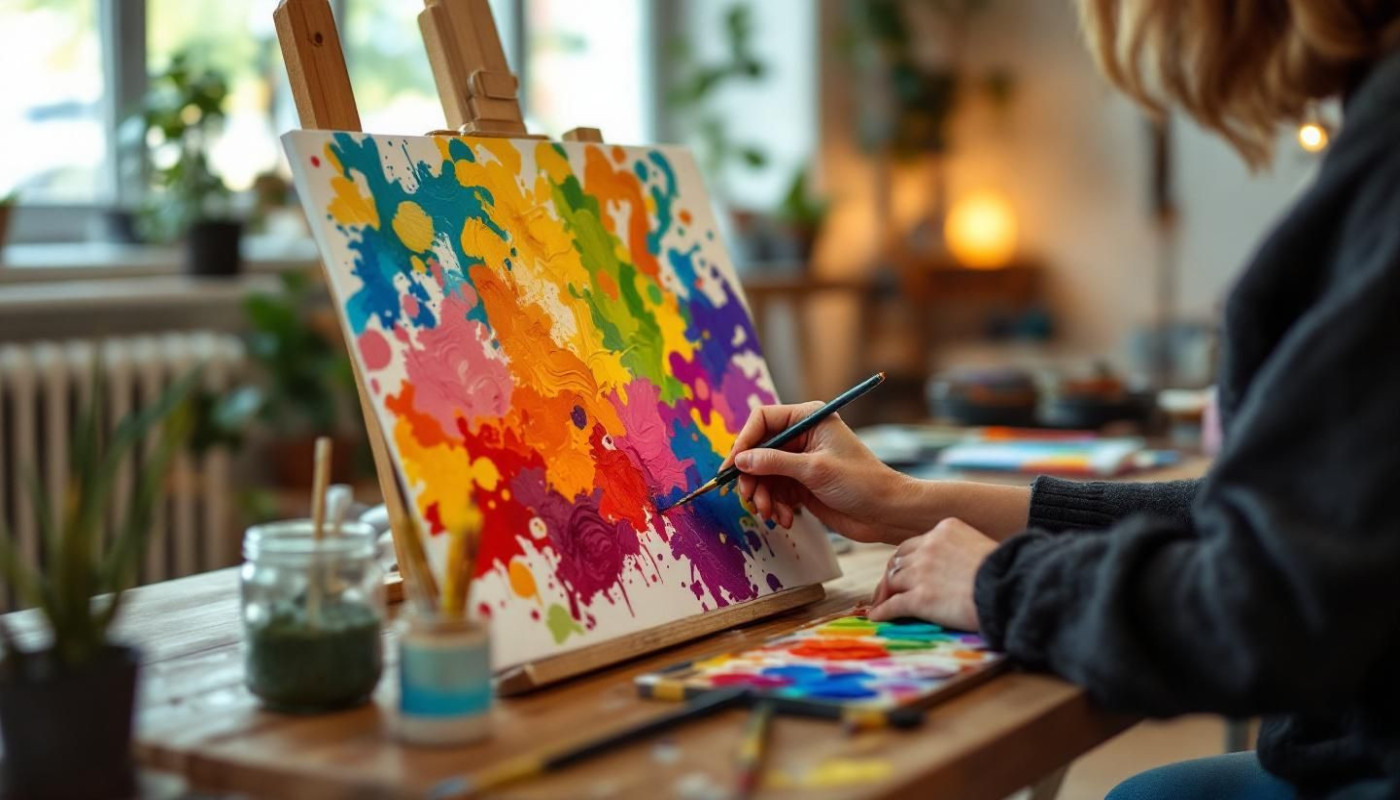Table of contents
Creativity and emotional well-being are intricately connected, and exploring this relationship can reveal unique pathways to healing. Art therapy stands at the intersection of psychological care and artistic expression, offering a safe space for individuals to unlock their inner creativity while addressing emotional challenges. Discover how embracing this therapeutic approach can open new doors for self-discovery and growth in the following insightful paragraphs.
Unveiling the power of art therapy
Art therapy functions as a therapeutic tool with deep historical roots, drawing from early 20th-century psychological theories that recognized the value of creative expression in mental wellness. At its core, art therapy uses expressive modalities such as drawing, painting, sculpting, and other creative activities to enable individuals to communicate thoughts and emotions that may be difficult to express verbally. Certified art therapists facilitate structured interventions, tailoring the creative process to address specific emotional healing goals. By offering a safe, non-judgmental space, these professionals help clients explore inner experiences, reduce anxiety, and enhance self-awareness. This intersection between creative process and psychological support fosters resilience, providing new pathways for coping and self-understanding for those seeking enhanced mental wellness.
The principles guiding art therapy emphasize that every individual possesses innate creativity, which can be harnessed to unlock emotional healing. Through the intentional use of various expressive modalities, clients externalize feelings and conflicts, making them more manageable and accessible for processing. Professional art therapists are trained to interpret symbolic content and guide clients toward personal insights, often integrating art-making with verbal discussion for comprehensive support. This approach is recognized not only for its ability to facilitate self-expression but also for its adaptability across diverse populations and mental health challenges, establishing art therapy as a widely respected therapeutic tool in both clinical and community settings.
Boosting creativity through self-expression
Art therapy benefits individuals by promoting self-expression and nurturing creativity, regardless of any prior artistic experience. For many adults, engaging in guided creative exercises within a supportive environment helps dismantle internal obstacles such as fear of judgment or perfectionism. Under the direction of an experienced clinical psychologist specializing in creative therapies, participants are encouraged to experiment with various artistic mediums, which can stimulate innovative thinking and unlock new perspectives. This process not only supports the emergence of fresh ideas but also strengthens creative resilience—the capacity to adapt, persist, and thrive creatively even in the face of challenges. As self-expression becomes more fluid, individuals often discover novel solutions to personal struggles and gain a deeper understanding of themselves, demonstrating the transformative impact of art therapy on everyday life.
Emotional release and regulation
Art therapy provides a structured and supportive environment for emotional release, enabling individuals to express complex feelings such as anxiety, sadness, and anger in a safe and contained manner. Through therapeutic art interventions like guided imagery, spontaneous drawing, and the use of color to symbolize mood, participants are encouraged to externalize inner experiences that may otherwise remain unspoken. These art therapy techniques are grounded in the principle of affect regulation, which refers to the process by which individuals manage and modulate emotional intensity. By visually representing emotions, clients gain direct access to subconscious material and can develop healthier strategies for anxiety relief and emotional regulation. The integration of art therapy with other modalities, as seen in EMDR therapy, can further enhance the processing of traumatic memories and offer additional pathways for healing intense emotional states.
Building self-awareness and mindfulness
Engaging in art therapy fosters self-awareness by encouraging individuals to explore their thoughts and emotions through creative expression. The process of mindful art-making—where attention is directed fully to the act of creating—naturally enhances mindfulness, grounding participants in the present moment. This immersive experience allows for gentle introspection, as the individual tunes into subtle feelings and bodily sensations that might otherwise go unnoticed in daily life. Through art therapy, the repetitive motion of brush strokes, the tactile sensation of sculpting, or the focus required in drawing offer concrete opportunities to observe internal states and gently uncover inner patterns, ultimately building a deeper sense of self-awareness. Such practices promote ongoing mindfulness, making it easier to remain connected to the present moment both during and beyond creative sessions.
The therapeutic nature of mindful art-making lies in its ability to quiet mental distractions and provide a safe, non-judgmental space for introspection. Participants are invited to notice their reactions to materials, colors, and imagery, allowing for personal insights that can lead to greater emotional balance. As individuals repeatedly engage in art therapy, they strengthen their capacity to observe thoughts and feelings without immediate reactivity, reinforcing self-awareness and mindfulness skills. This present-focused attention is particularly valuable for adults seeking to understand themselves better and cultivate resilience, as it encourages ongoing reflection and self-discovery in a supportive, creative context.
Encouraging long-term personal growth
Regular engagement in art therapy initiates a therapeutic trajectory that supports enduring personal growth and fosters adaptive coping strategies over time. Through sustained creative practice, participants are guided to explore and process complex emotions, leading to a deeper understanding of personal motivations, strengths, and areas for development. Art therapy outcomes extend beyond immediate emotional relief, as individuals begin to internalize skills that enhance resilience and enrich their overall quality of life. The cumulative benefits manifest in increased self-awareness, the ability to navigate challenges with greater confidence, and stronger emotional regulation capacities. As each session contributes to this ongoing process, the repeated act of creative expression becomes a reliable resource for self-reflection and stress management, ultimately promoting lifelong well-being and psychological flourishing.
Similar articles

Exploring The Hidden Benefits Of Lymphatic Bodywork For Wellness?

Exploring The Healing Benefits Of Wearing Natural Stone Bracelets

How Personalized Skin Care Routines Enhance Mental And Physical Health

Understanding The Benefits And Types Of Top-Rated CBD Oils

Exploring The Benefits Of Ice Baths In Modern Recovery Therapies

Exploring The Benefits Of Functional Medicine For Chronic Illness Management

